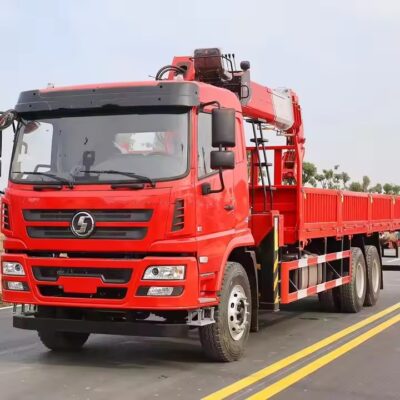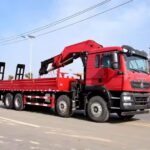The transportation industry has witnessed significant advancements over the years, and one area that has seen remarkable progress is the field of vehicle transportation. When it comes to moving vehicles from one location to another, safety and efficiency are paramount. Rollback carriers have emerged as a reliable and innovative solution, offering a smooth and secure means of transporting vehicles.
Evolution of Vehicle Transportation:
The history of vehicle transportation is an intriguing journey that has evolved from primitive methods to sophisticated technologies. Initially, vehicles were driven from place to place, irrespective of the distance. This approach posed numerous challenges, including wear and tear on vehicles, potential accidents, and increased fuel consumption. The need for a safer and more efficient method of transporting vehicles led to the development of towing systems and carriers.
Towing vs. Atzera eramaileak:
Traditional towing methods involved hitching a vehicle to a kamioia using a chain or strap. While effective in some cases, this method had its limitations. Towing could potentially cause damage to the towed vehicle, especially if it was not properly secured or if the distance was considerable. Gainera, sudden stops or road irregularities could lead to accidents, endangering both the towed vehicle and other road users.
Rollback carriers, on the other hand, revolutionized the vehicle transportation industry by offering a safer and smoother alternative. These carriers feature a flatbed that can be tilted or rolled back to ground level, allowing vehicles to be driven or rolled onto the platform. Once the vehicle is secured, the flatbed is raised, and the vehicle is transported securely without its wheels touching the road. This method significantly reduces wear and tear, eliminates the risk of accidents due to sudden stops, and ensures a smoother ride for the transported vehicle.

Advantages of Rollback Carriers:
1. Safety: Rollback carriers prioritize safety by minimizing the risk of accidents during transportation. The immobilization of the transported vehicle prevents any unintentional movement that could lead to collisions or accidents.
2. Damage Prevention: Traditional towing methods often result in damage to the towed vehicle, particularly if the vehicle has low ground clearance. Rollback carriers eliminate this concern by providing a flat, even surface that ensures no part of the vehicle makes contact with the road.
3. Aniztasuna: Rollback carriers are suitable for transporting a wide range of vehicles, from cars and SUVs to motorcycles and small trucks. Their adaptability makes them a preferred choice for both personal and commercial vehicle transportation.
4. Reduced Wear and Tear: The absence of friction between the transported vehicle‘s wheels and the road significantly reduces wear and tear on tires and other vehicle components.
5. Long-Distance Transport: Rollback carriers are ideal for long-distance transportation, as they offer a secure and efficient means of moving vehicles without subjecting them to the stresses of constant driving.
6. Emergency Situations: Rollback carriers are commonly used in emergencies, esaterako towing vehicles involved in accidents. Their design ensures a swift and safe removal of damaged vehicles from the scene.
7. Peace of Mind: Ibilgailuaren jabeas can rest assured that their vehicles will arrive at their destination in the same condition in which they were loaded onto the carrier.
Innovation and Technology:
Teknologiaren aurrerapenak have further enhanced the capabilities of rollback carriers. Modern carriers come equipped with hydraulic systems that allow for seamless tilting and lifting of the flatbed. Gainera, the introduction of remote control systems enables operators to manage the loading, transportation, and unloading processes with ease. These innovations not only improve the efficiency of vehicle transportation but also contribute to the safety of both the transported vehicle and the carrier operators.
Environmental Considerations and Future Trends:
In addition to their functional advantages, rollback carriers also contribute to environmental sustainability. Ez bezala traditional towing, which requires the towed vehicle’s engine to be running during transportation, rollback carriers allow vehicles to be immobilized, reducing fuel consumption and emissions. This is particularly important in today’s world, where environmental concerns are at the forefront of many industries.
Looking ahead, the future of vehicle transportation holds exciting prospects. As electric and autonomous vehicles hedatuago bihurtu, the role of rollback carriers will evolve as well. Electric vehicles (EVak) have different requirements when it comes to transportation, eta rollback carriers can be adapted to accommodate these needs. With ibilgailu autonomoak on the horizon, the integration of advanced technology will likely result in carriers equipped with autonomous loading and unloading capabilities, making the process even more seamless.
Eta gainera, the globalization of markets has led to increased demand for international vehicle transportation. Rollback carriers, with their versatility and secure transportation methods, are poised to play a crucial role in this expanding market. Efficiently moving vehicles across borders and continents requires solutions that prioritize both safety and reliability – qualities that rollback carriers inherently possess.

The Human Element:
While technology continues to advance, it’s important not to overlook the human element in the operation of rollback carriers. Skilled operators are essential for ensuring the proper loading, transportation, and unloading of vehicles. These professionals understand the intricacies of securing various types of vehicles onto the carrier and are adept at navigating challenges that may arise during transport.
Gainera, the role of rollback carrier operators extends beyond technical skills. They must possess excellent communication skills to interact with ibilgailuaren jabeas, provide updates on transportation progress, and offer reassurance regarding the safety of the vehicles being transported. Larrialdietan, such as accident scenes, these operators play a vital role in clearing the area and facilitating the swift removal of damaged vehicles.
Ondorioa:
Rollback carriers represent a significant leap forward in the realm of vehicle transportation. From their humble origins as a response to the limitations of traditional towing methods, these carriers have evolved into sophisticated, technologically advanced solutions that prioritize safety, efficiency, and environmental sustainability. As the world of transportation continues to evolve, rollback carriers are likely to remain a cornerstone of the industry, adapting to accommodate the changing needs of vehicle types and emerging technologies.
In a world where vehicles are not merely modes of transportation but also reflections of personal and professional identities, the role of rollback carriers takes on added significance. Ensuring the safe and secure transportation of these valuable assets is not just a logistical task; it’s a responsibility that impacts individuals and businesses alike. Rollback carriers have risen to this challenge, offering a combination of innovation and reliability that instills confidence in vehicle owners and transportation professionals alike.

As we look toward the future, the trajectory of vehicle transportation is one of continued innovation. From electric and autonomous vehicles to new challenges brought about by an increasingly connected world, rollback carriers are poised to adapt and excel. They stand as a testament to the industry’s dedication to improvement, safety, and efficiency – qualities that define not only the realm of transportation but also our broader aspirations as a society.
In a world that values convenience, reliability, and environmental consciousness, rollback carriers offer a solution that meets all these criteria. From everyday vehicle transportation needs to emergencies, these carriers have become an indispensable asset, facilitating the smooth movement of vehicles across short distances and long journeys alike. With each successful transportation, rollback carriers reinforce their reputation as a symbol of progress in an industry that continues to redefine what it means to move forward.









